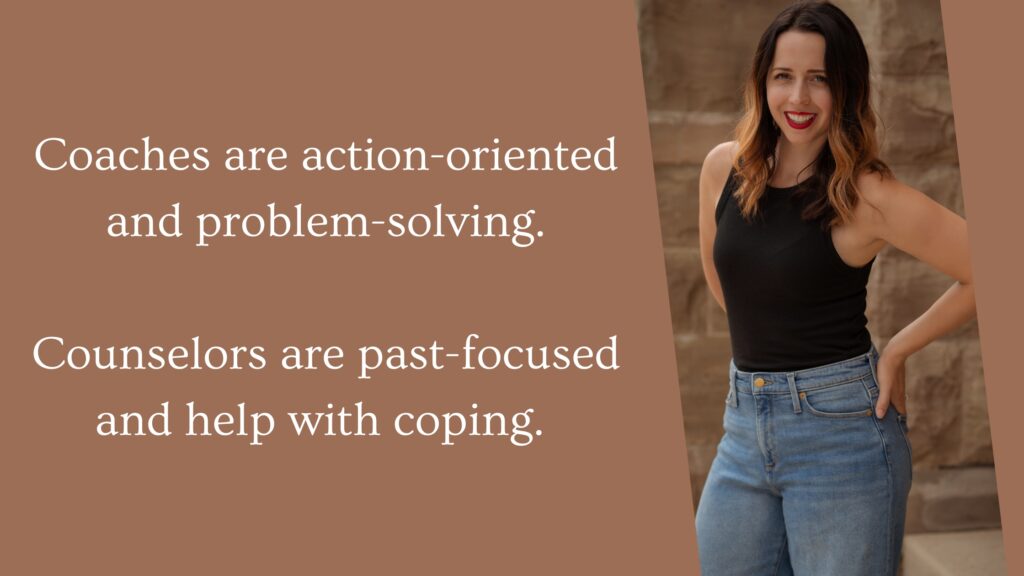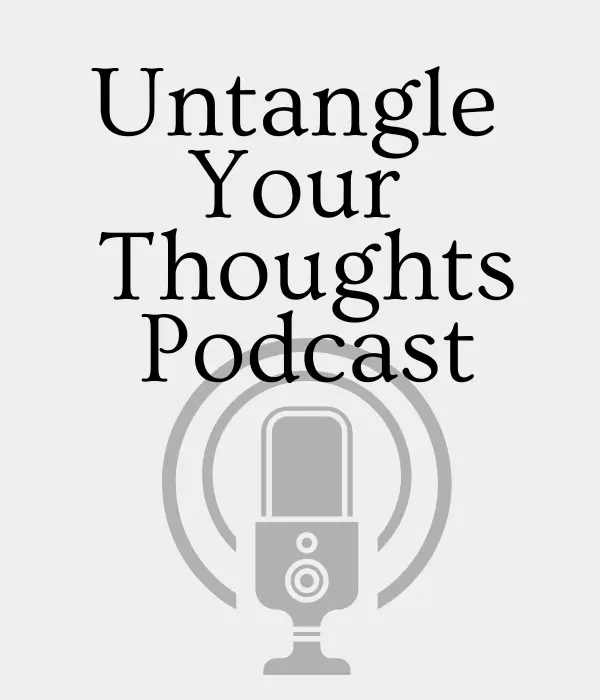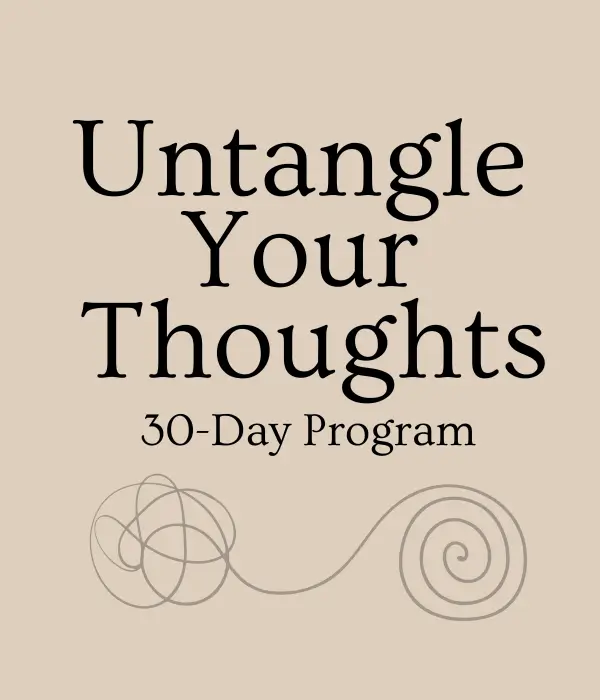Table of Contents
- Training and Certification for a Christian Mental Health Coach versus a Counselor
- The Approach Between a Christian Mental Health Coach and a Counselor
- Scope of Practice for a Christian Mental Health Coach and a Counselor
- Goals and Outcomes for a Christian Mental Health Coach and a Counselor
- Not sure what to do next? Book a free 20-minute consultation here!
The difference between a Christian mental health coach and a counselor lies primarily in training, approach, beliefs, and scope of practice. In this blog post, I will discuss the differences between Christian mental health coaches and counselors, sharing distinctions with specific examples (and my method of coaching with my clients). Not every coach will operate or coach as I do, as is shared below.
Please note: These are general statements for mental health coaches and counselors. Every coach and counselor run their practice and business differently.
Training and Certification for a Christian Mental Health Coach versus a Counselor
Christian Mental Health Coach:
- Often, they have certifications from Christian coaching programs.
- It may not require advanced degrees.
- Training focuses on goal-setting, accountability, action plans, healing to move forward, and spiritual guidance based on Christian principles.
- Depending on the state, some coaches are still required to report child and elderly abuse.
Counselor:
- Requires degrees in psychology, counseling, or social work.
- Must be licensed by state boards.
- Training includes extensive coursework in mental health disorders, therapeutic techniques, and clinical practice.
I am a Board Certified Master Mental Health Coach, Advanced Life Coach, Trauma Informed Coach, and Board Certified Biblical Counselor. I run my coaching business very differently from most. I provide “homework” for my clients following our sessions together (which they love) to hold them accountable to the process of moving forward. We take what they learn in each session and create a plan for our time in between sessions. Every Christian Mental Health Coach is different. My goal is to help my clients move forward, get unstuck, and find breakthroughs in very specific areas of their lives.
You can learn more about working with me 1:1 here!
The Approach Between a Christian Mental Health Coach and a Counselor
Christian Mental Health Coach:
- Emphasizes spiritual growth, emotional healing, and biblical principles.
- Uses coaching techniques to help clients set and achieve healing goals, spiritual goals, and emotional goals.
- Provides encouragement, accountability, and an action plan within a Christian framework.
- Provides a safe place for clients to be heard, seen, and acknowledged.
Counselor:
- Focuses on diagnosing and treating mental health disorders.
- Uses therapeutic techniques (e.g., Cognitive Behavioral Therapy, Psychodynamic Therapy).
- Provides a safe place for clients to be heard, seen, and acknowledged.
One of the biggest differences between Christian mental health coaching and counseling is diagnosing and treating mental health disorders. As a Christian Mental Health Coach, I can not treat or diagnose any client. However, being a trauma-informed coach, I can still help my clients understand how their bodies change and adapt to pain, help them make sense of their world when bad things happen, and help them move through anxious feelings they have all through a biblical and clinical lens. Coaching and counseling work very well together. Many of my 1:1 clients see me alongside their counselor. They love how I can provide a clear action plan for them between our sessions.
You can book a free 20-minute consultation here!
Scope of Practice for a Christian Mental Health Coach and a Counselor
Christian Mental Health Coach:
- Works with clients to enhance their personal, spiritual, and emotional well-being. (I work with my clients’ physical health as needed).
- Cannot diagnose or treat mental health disorders.
- Refers clients to licensed professionals for issues beyond their scope.
Counselor:
- Qualified to diagnose and treat a wide range of mental health issues.
- Provides long-term therapy to address deep-rooted psychological issues.
- Can prescribe certain interventions and, in some cases, collaborate with psychiatrists for medication management.
I like to look at my clients as whole people. That means I look at their physical health, how they move their bodies, whether they are eating enough, how they sleep, and how the stress in their lives impacts them. The emotional, spiritual, and physical parts of us all impact each other. Therefore, we can’t only look at the emotional without looking at the physical, etc.
For example, a client of mine is a single mom who came to me to help her work through some of her mental stress. However, when I asked her about her eating, we realized she only consumes about 800-1000 calories (if that) on any given day. When we started to address her nutrition and slowly increased her calorie intake, she didn’t feel the need to nap and began to feel clearer mentally. She is now seeing a nutritionist to help her with her eating. (Shared with her approval.)
Are you ready to have the accountability you need to move forward and get unstuck from where you are in life? You can book a free 20-minute consultation here!
Goals and Outcomes for a Christian Mental Health Coach and a Counselor
Christian Mental Health Coach:
- Aims to help clients achieve specific goals aligned with their faith.
- Focuses on practical outcomes, everyday techniques or practices they can apply to life and spiritual well-being.
- Coaches are action-oriented and problem-solving.
Counselor:
- Aims to improve clients’ overall mental health and emotional well-being.
- Focuses on resolving underlying psychological issues.
Another significant difference between Christian mental health coaching and counseling is coaching is focused on the present and moving forward, while counseling is often focused on the past and learning to cope (healing from complex trauma, etc.)
My clients often come to me because they want to manage stress in their daily lives better, get unstuck, find what seems to be blocking them from moving forward, or have a breakthrough for a specific situation. We talk about the past and their pain from it, but we do not stay there the whole session.
Learn more about how I help my clients here!
Christian Mental Health Coaches focus on spiritual guidance, goal-setting, accountability, and creating a plan for healing and moving forward within a Christian framework. Not equipped to diagnose, treat mental health disorders, or prescribe medication.
A counselor is trained to diagnose and treat mental health. Provides long-term therapy to address more complex emotional and psychological concerns.
What’s important is that you find the courage to reach out to someone for the support and help you need, whether it is a coach, counselor, or both. Both bring different things to the table when it comes to helping you heal and move forward.





